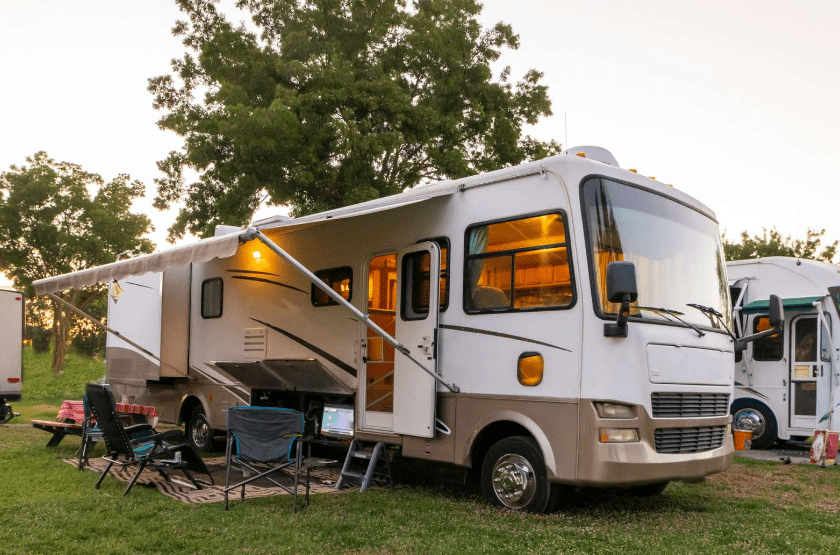As the demand for efficient and reliable energy solutions increases, Lithium RV batteries have emerged as the preferred choice for powering recreational vehicles (RVs). With their superior performance, longevity, and safety features, lithium batteries are revolutionizing the way RV enthusiasts experience life on the road. In this article, we will delve into the reasons why lithium batteries are the top choice for RV power systems, highlighting their advantages over traditional battery types.
1. Overview of Lithium RV Batteries
1.1 What Are Lithium RV Batteries?
Lithium RV batteries are rechargeable batteries that utilize Lithium Iron Phosphate (LiFePO4) technology. This type of battery is designed specifically to meet the unique energy demands of RVs, offering a range of benefits that make them ideal for mobile living.
1.2 Key Features of Lithium Batteries
- High Energy Density: Lithium batteries can store more energy in a smaller and lighter package compared to lead-acid batteries.
- Long Lifespan: These batteries typically last between 2000 to 5000 cycles, significantly outpacing traditional options.
- Fast Charging: Lithium batteries can be charged more quickly, allowing for less downtime when power is needed.
2. Advantages of Lithium RV Batteries
2.1 Superior Performance
Lithium RV batteries deliver exceptional performance:
-
Stable Voltage Output: Unlike lead-acid batteries, which experience voltage drops as they discharge, lithium batteries maintain a consistent voltage throughout their discharge cycle. This ensures that devices operate efficiently without interruption.
-
High Discharge Rates: They can handle high discharge rates without compromising performance, making them suitable for running multiple appliances simultaneously.
2.2 Lightweight and Compact Design
The lightweight nature of lithium batteries makes them ideal for RV applications:
-
Reduced Weight: Lithium batteries are significantly lighter than lead-acid counterparts, which helps improve fuel efficiency and handling.
-
Space-Saving Design: Their compact size allows for flexible installation options within your vehicle.
2.3 Enhanced Safety Features
Safety is a top priority when it comes to battery technology:
- Thermal Stability: Lithium Iron Phosphate chemistry offers excellent thermal stability, reducing the risk of overheating and fire.
- Built-in Protection: Many lithium batteries come equipped with Battery Management Systems (BMS) that monitor voltage, current, and temperature to prevent unsafe conditions.
3. Cost Considerations
3.1 Initial Investment vs. Long-Term Savings
While lithium RV batteries often come with a higher upfront cost compared to lead-acid options:
-
The long-term savings from reduced maintenance costs and longer lifespan make them a cost-effective choice over time.
-
Users can expect fewer replacements and lower overall operational costs.
3.2 Resale Value
Investing in lithium technology can enhance your RV’s resale value:
- Many buyers prefer modern energy solutions that offer efficiency and reliability, making your vehicle more attractive on the market.
4. Environmental Impact
4.1 Eco-Friendly Materials
Lithium Iron Phosphate (LiFePO4) chemistry is less toxic compared to traditional lead-acid options:
-
This makes lithium batteries a more environmentally friendly choice for powering your RV.
4.2 Recycling Options
As the demand for lithium batteries grows, so do recycling programs:
- Many manufacturers offer recycling programs that allow you to dispose of old batteries responsibly.
5. Installation and Maintenance Tips
5.1 Professional Installation
While DIY installation is possible, we recommend professional installation for optimal performance:
-
A professional can ensure that all connections are secure and that the battery management system (BMS) is properly configured.
5.2 Regular Monitoring
Regularly monitor your battery’s performance:
- Use a battery management system (BMS) or voltage monitor to keep track of charge levels and health status.
| Feature | Lithium RV Battery | Lead-Acid Battery |
|---|---|---|
| Weight | Lightweight | Heavier |
| Cycle Life | 2000 – 5000 cycles | 300 – 1000 cycles |
| Depth of Discharge | Up to 80% | Typically 50% |
| Charging Speed | Fast | Slower |
| Maintenance | Low | Higher |
6. Latest Developments in Battery Technology
Recent advancements in battery technology continue to enhance performance:
- Innovations such as smart battery management systems (BMS) allow users better monitoring capabilities.
- Research into solid-state batteries promises increased energy density and improved safety characteristics in future models.
7. Frequently Asked Questions (FAQs)
7.1 How long do lithium RV batteries last?
With proper care and maintenance, lithium RV batteries can last over ten years or more.
7.2 Can I use my existing charger with a lithium battery?
It is essential to use a charger specifically designed for lithium batteries to ensure safety and efficiency.
7.3 Are there any downsides to using lithium RV batteries?
The primary downside is the higher initial cost compared to lead-acid options; however, long-term savings often outweigh this investment.
8. Conclusion
In conclusion, Lithium Iron Phosphate (LiFePO4) batteries are undoubtedly the top choice for powering your recreational vehicle (RV). Their superior performance, lightweight design, long lifespan, and environmental benefits make them an ideal solution for modern energy needs on the road. By investing in lithium technology, you not only enhance your own experience but also contribute positively to environmental sustainability.At Redway Battery, we specialize in manufacturing high-quality Lithium LiFePO4 solutions tailored to meet diverse customer needs worldwide. With our extensive experience in this field, we provide custom solutions quickly for wholesale and OEM customers. For a quick quote or more information about our products, please contact us today!




